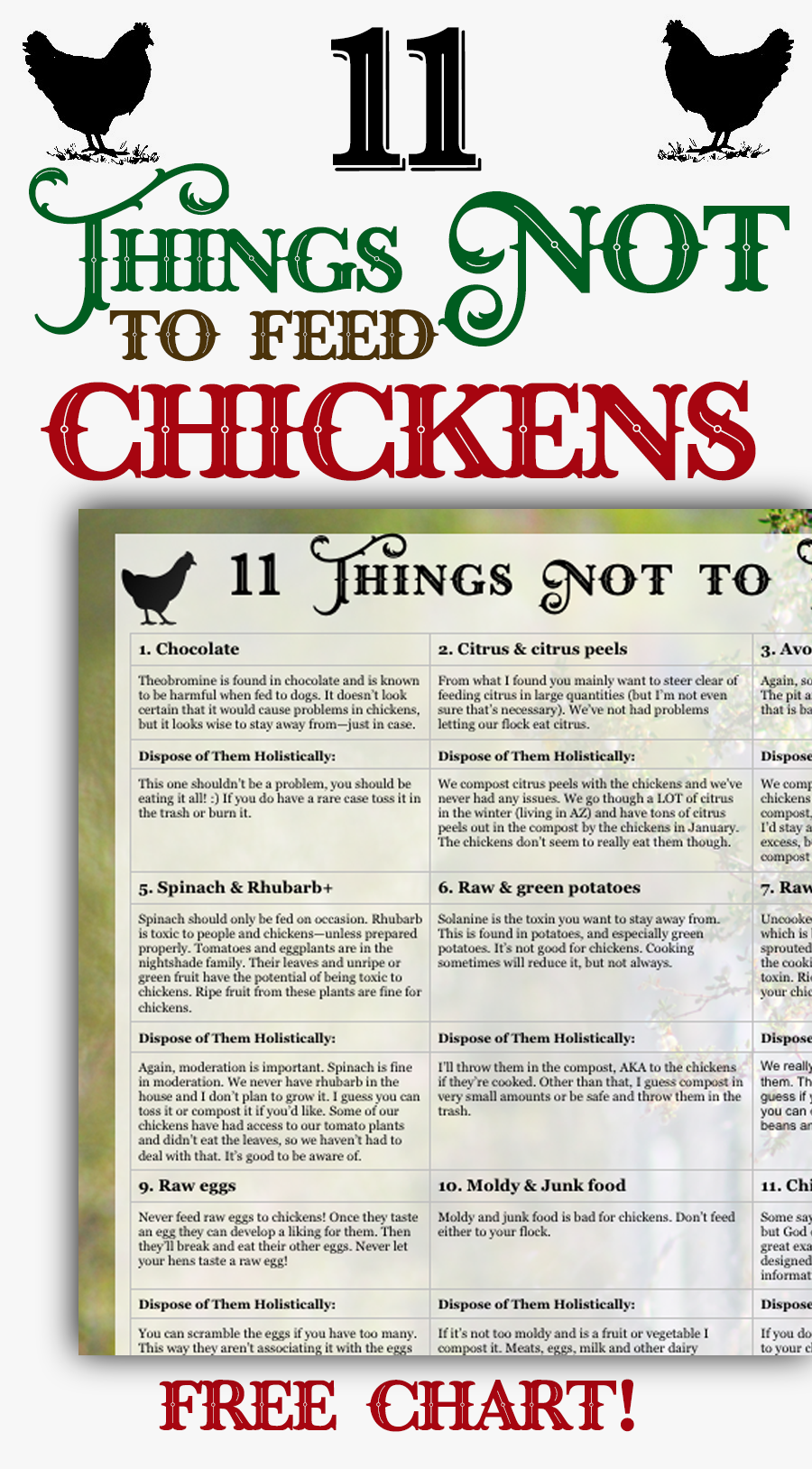When it comes to chicken husbandry, it is important to know which foods should be avoided when feeding your chickens. Knowing which foods chickens can’t eat is essential for keeping them healthy and productive. There are certain foods that are toxic to chickens and can cause serious health problems. This article will provide a list of the foods to avoid in chicken husbandry, so you can keep your chickens healthy and safe. Knowing which “foods chickens can’t eat” is an important step in successful chicken husbandry.
What Chickens Can’t Eat
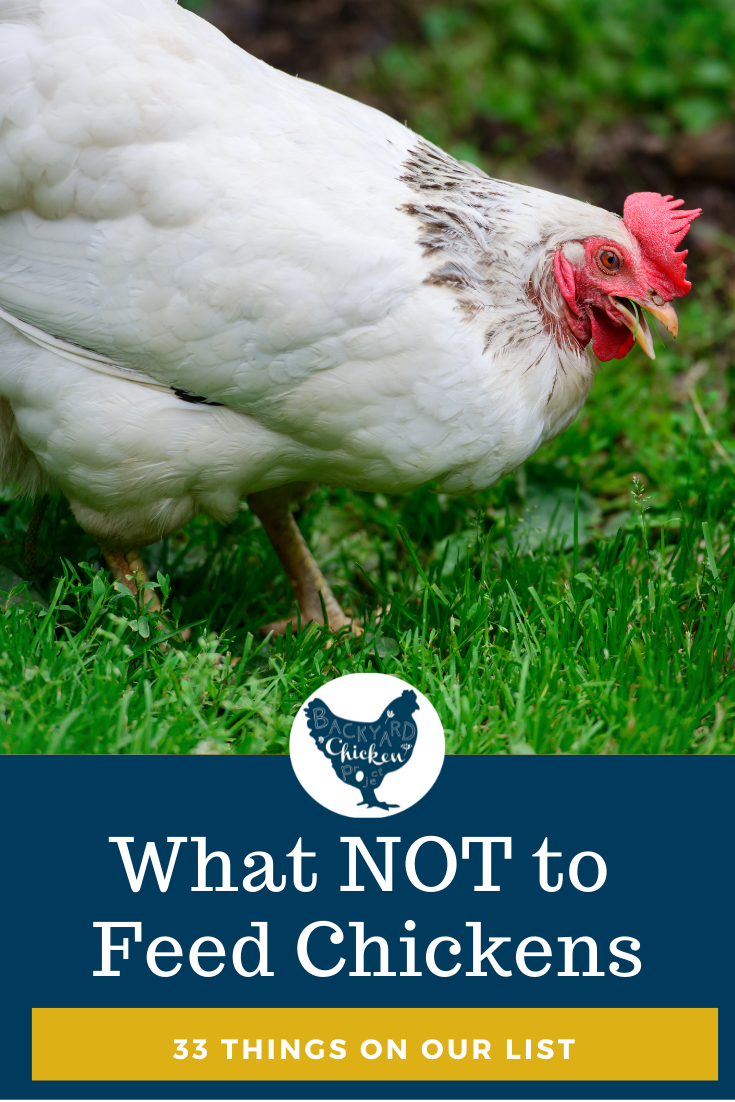
Dairy Products
Chickens should not be fed dairy products such as milk, cheese, and yogurt as they are difficult for them to digest. Additionally, feeding chickens dairy products can lead to health issues such as diarrhea.
Raw Meat and Fish
Raw meat and fish should not be given to chickens as it can contain potentially harmful bacteria. If you choose to feed your chickens meat or fish, it should always be cooked thoroughly.
Chocolate
Chocolate should never be given to chickens as it can be toxic to them. If consumed in large quantities, it can lead to severe health issues.
Avocado
Avocados should never be given to chickens as the leaves, skin, and pit are all toxic to them. Eating avocado can lead to difficulty breathing, fluid buildup in the lungs, and even death.
Caffeine
Caffeine should not be given to chickens as it can be toxic to them. Caffeine can affect their heart rate and lead to health issues such as seizures and even death.
Onions and Garlic
Onions and garlic should not be given to chickens as they can be toxic to them. Eating onions and garlic can lead to anemia, breathing difficulties, and even death.
Apple Seeds
Apple seeds should not be given to chickens as they contain cyanide which can be toxic to them. Eating apple seeds can lead to difficulty breathing, seizures, and even death.
Bones
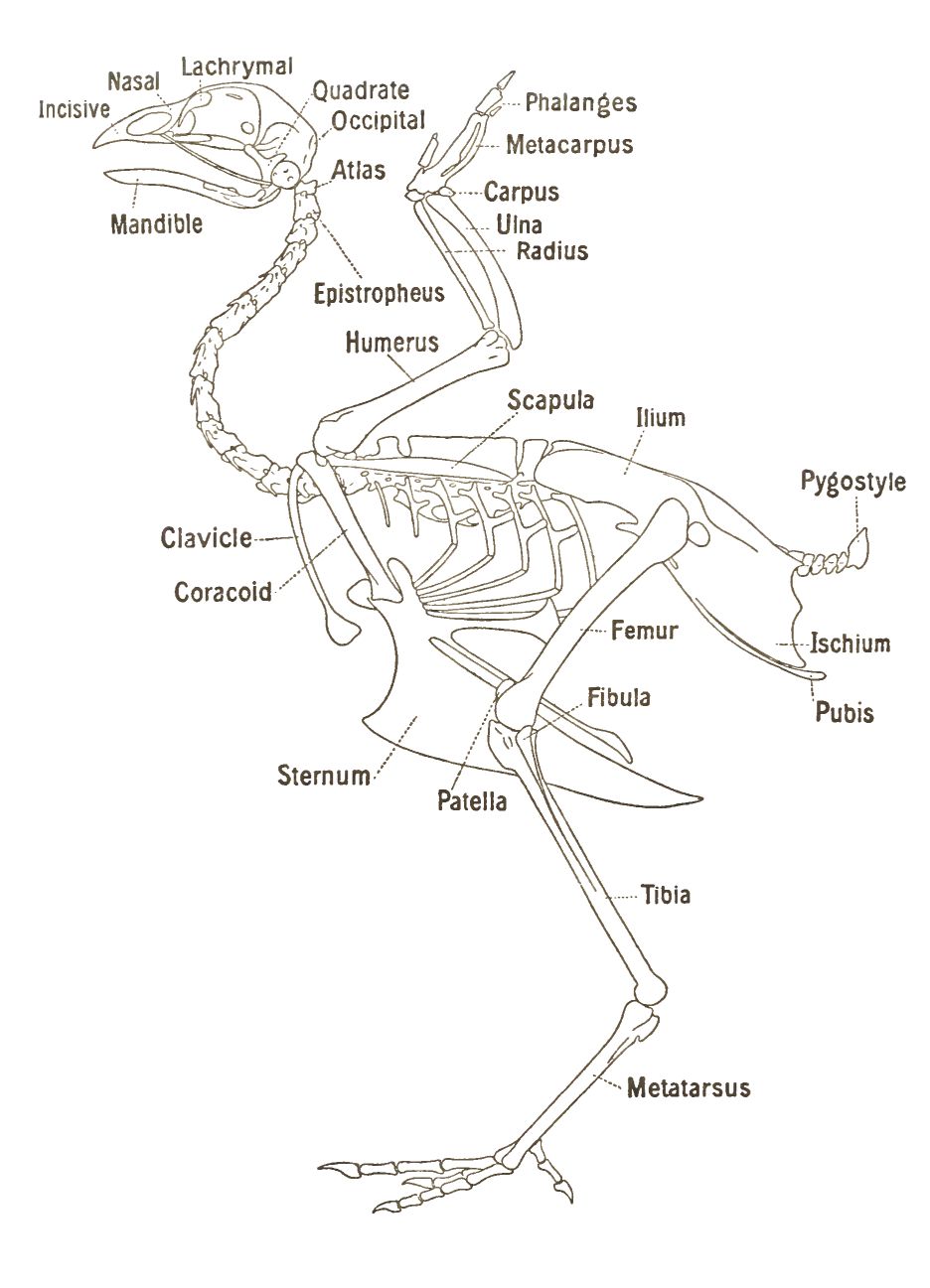
Most poultry owners are aware that bones are not a safe food for chickens. Bones, especially cooked bones, can splinter and cause serious injuries to chickens, choking or even death. The sharp edges of the splintered bones can also puncture the intestines or other internal organs, leading to infection and death. Any bones that are fed to chickens should be raw, uncooked, and completely free of meat and fat. Even then, the bones should be large enough that they can’t be swallowed whole. If you feed your chickens bones, it’s also important to supervise them and make sure they don’t swallow them.
Human Junk Food
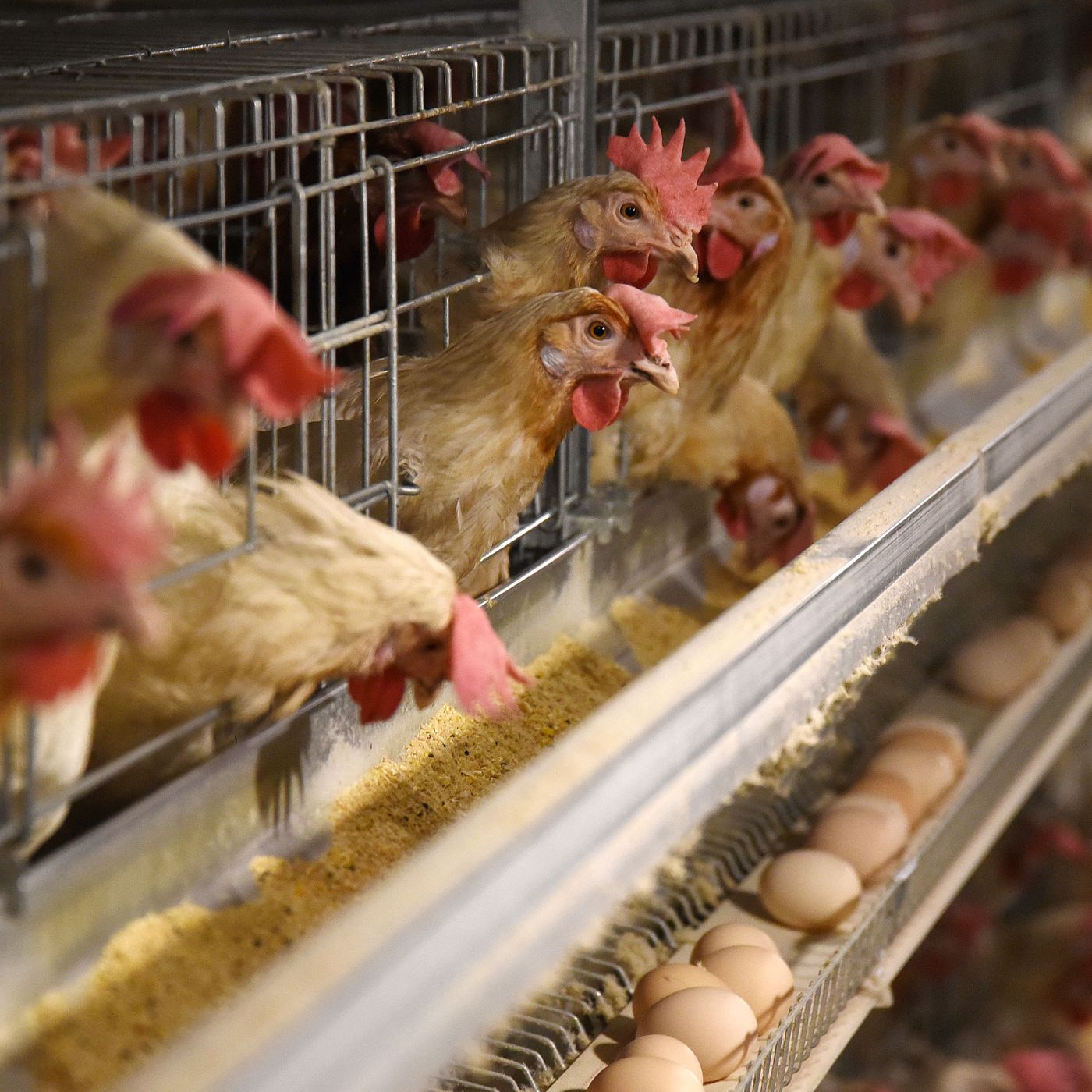
Chickens should not be given human junk food such as chips, french fries, candy, and other processed snacks. These foods are not only unhealthy for chickens, but they can also lead to nutritional deficiencies. In addition, they can cause digestive issues and can even increase the risk of salmonella. Furthermore, these foods provide little to no nutritional value, and can even be dangerous for chickens if eaten in large quantities. It is best to avoid these types of foods altogether to ensure the health and safety of your chickens.
Other Foods to Avoid
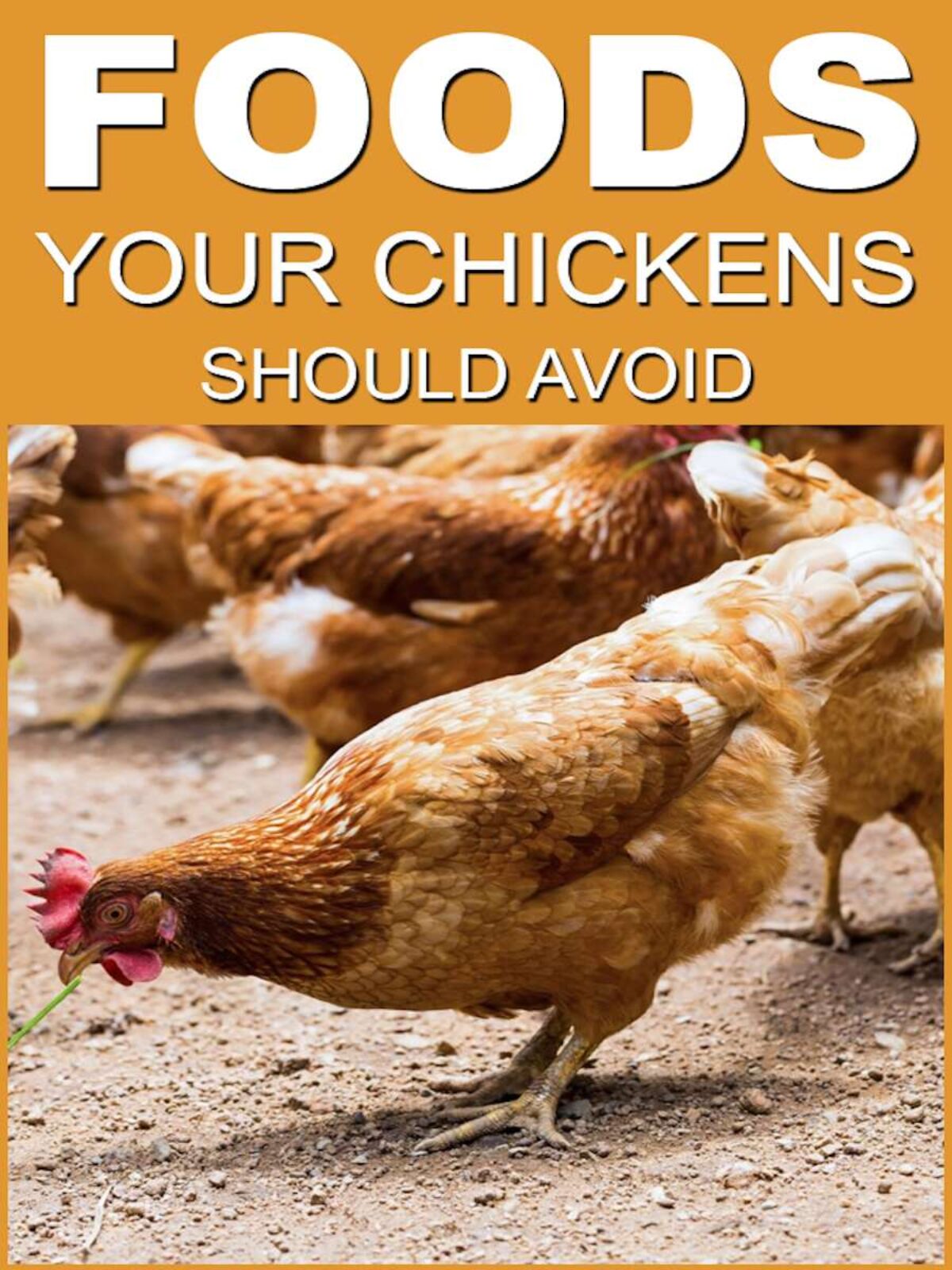
| Food | Reason to Avoid |
|---|---|
| Green potatoes and green tomatoes | Contain a toxin called solanine which can make chickens sick. |
| Chocolate | Can contain theobromine which can be toxic to chickens. |
| Citrus fruits | High in acidity and can cause stomach irritation. |
| Raw beans | Contain toxins that can cause digestive issues and even death. |
| Raw eggs | Can interfere with the absorption of important vitamins and can lead to deficiencies. |
| Moldy food | Can contain a toxin called aflatoxin which can cause liver damage. |
How to Feed Your Chickens
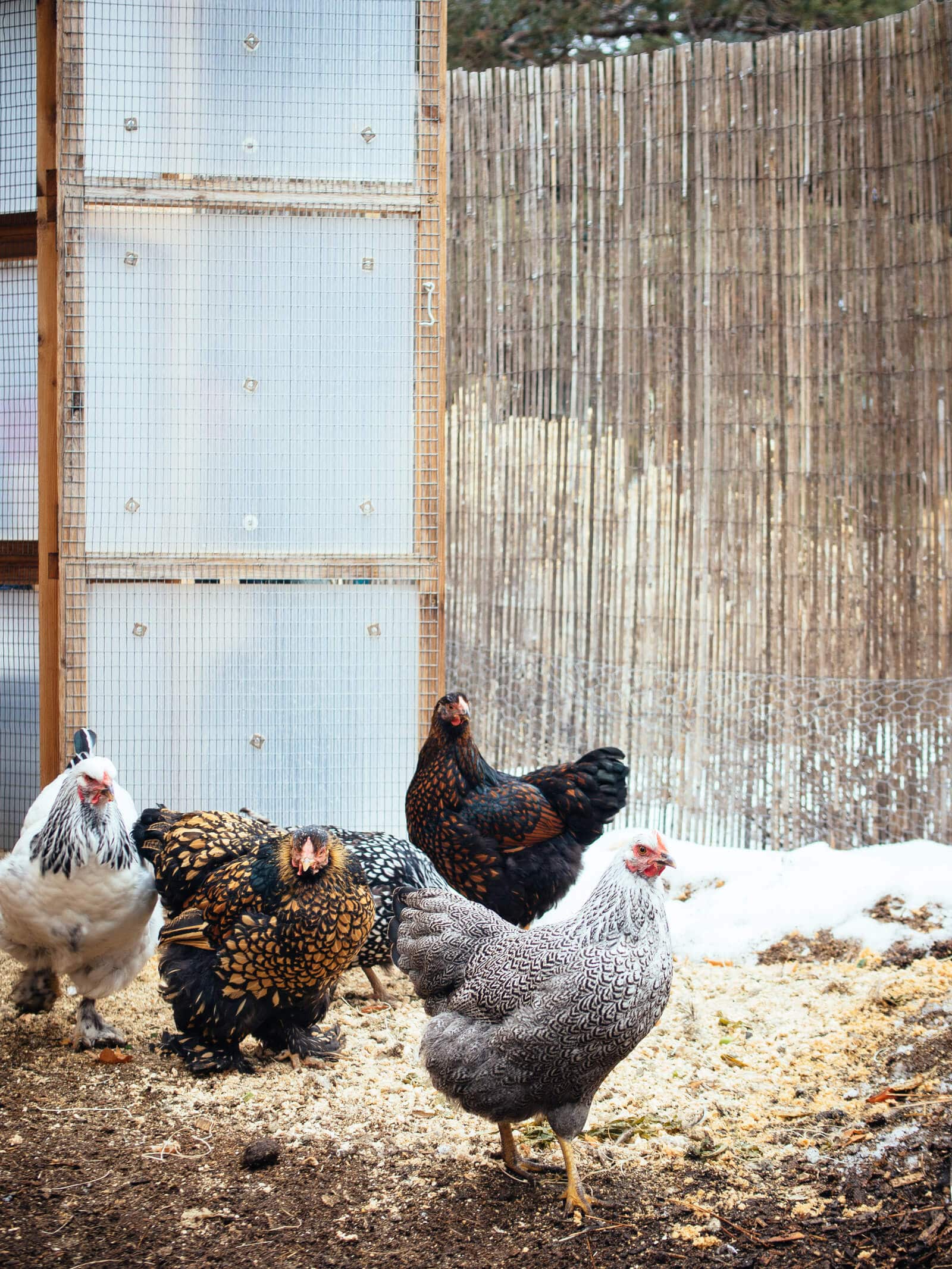
Store-bought chicken feed is the easiest and most convenient way to feed your chickens. It is a balanced feed that contains a mix of grains, minerals, and vitamins. Make sure to buy the right kind of feed for your chickens’ age and breed.
Scratch feed is an inexpensive way to supplement your chickens’ diet. It’s a mix of grain, usually corn, that can be fed as a treat. It’s usually sold in bags at feed stores.
Grit should be available to your chickens at all times to help them digest their food. Grit is made up of small pieces of stone or gravel that chickens swallow and store in their gizzards.
Table scraps can be fed to your chickens as treats in moderation. Avoid feeding them foods that are high in fat and sugar, as well as onion and garlic, which can be toxic.
Supplements can be added to your chickens’ feed to ensure they’re getting all the nutrients they need. Some of the most common supplements include calcium and oyster shell.
| Food | Description |
|---|---|
| Store-bought chicken feed | Balanced feed containing grains, minerals, and vitamins |
| Scratch feed | Mix of grain, usually corn, fed as a treat |
| Grit | Small pieces of stone or gravel to help with digestion |
| Table scraps | Can be fed as treats in moderation |
| Supplements | Added to feed to ensure proper nutrition |
Potential Health Risks
Chickens are prone to certain health risks when consuming certain foods. Some poultry foods may contain bacteria, viruses, and parasites that can make chickens sick. Foods such as moldy grains, peanuts, and garlic can cause digestive issues and respiratory problems. Spoiled meat, dairy products, and eggs can contain harmful bacteria that can cause food poisoning. High-sugar foods, such as candy and soda, may cause an imbalance in their diet, leading to obesity and other health problems. Other foods, such as raw potatoes and onions, contain toxins that can cause anemia. To keep chickens healthy, it is important to avoid feeding them these potential health risks.
Frequently Asked Questions
What are the most common foods to avoid when keeping chickens?
1. Chocolate: Chocolate contains theobromine, a chemical that can be toxic to chickens, resulting in symptoms such as increased heart rate, vomiting, and diarrhea.
2. Avocado: Avocados contain persin, a fungicidal toxin which can cause respiratory distress, congestion, fluid accumulation around the heart and even death.
3. Greens from the Nightshade Family: Greens from the nightshade family, such as tomatoes, peppers, potatoes and eggplants, have alkaloids which can be toxic to chickens.
4. Raw Beans: Raw beans contain hemagglutin, a substance which can cause red blood cells to clump together. This can lead to anemia and death in chickens.
5. Onions: Onions can cause anemia in chickens due to the presence of sulfoxide and disulfide compounds.
6. Apple Seeds: Apple seeds contain amygdalin, a form of cyanide, which can be toxic to chickens.
7. Caffeine: Caffeine is toxic to chickens and can cause seizures, hyperactivity, and death.
8. Raw Eggs: Raw eggs can contain salmonella, a bacteria which can be harmful to both chickens and humans.
9. Moldy or Spoiled Food: Moldy or spoiled food can contain toxins which can be harmful to chickens.
10. Dairy Products: Dairy products, such as milk and cheese, can cause diarrhea in chickens.
Are there any foods that could be potentially harmful to chickens?
Yes, there are certain foods that chickens should never eat. These include:
- Raw beans and bean pods: these contain the toxin phytohaemagglutinin and can cause paralysis, seizures, and in some cases, death.
- Avocado: the leaves, skin, and pit of avocados contain a toxin called persin, which is toxic to chickens.
- Chocolate: this contains a stimulant called theobromine, which can cause heart failure in chickens.
- Raw potatoes or green potatoes: these contain solanine, a toxin which can cause paralysis and even death in chickens.
- Moldy or spoiled food: this can contain toxins that can cause illness or even death in chickens.
- Onions: these contain compounds that can damage a chicken’s red blood cells.
It is important to ensure that any food given to chickens is fresh and free from mold or spoilage. It is also important to ensure that any treats given to chickens are safe and appropriate for their nutritional needs.
Are there any foods that chickens should not eat at all?
Yes, there are some foods chickens should not eat at all. These include:
- Chocolate: Chocolate contains Theobromine, a stimulant that is toxic to chickens.
- Avocado: Avocado contains persin, which can be harmful to chickens.
- Onion: Onions, garlic and other members of the onion family contain thiosulphate, a compound that can be toxic when ingested in large quantities.
- Apple seeds: Apple seeds contain amygdalin, which releases cyanide when digested.
- Green potatoes and tomato leaves: These contain solanine and tomatine, both of which can produce toxic effects in chickens.
- Caffeine: Caffeine can be toxic to chickens and should be avoided.
- Raw eggs: Raw eggs may contain Salmonella, which can make chickens sick.
- Mold: Moldy food should never be fed to chickens as it can contain toxins that can make them very ill.
It is important to remember that while some foods may not be toxic, they may still be unhealthy for chickens. Therefore, it is important to always provide a balanced diet for your chickens.
Are there any foods that should not be given to baby chicks?
Yes. Certain foods should be avoided when feeding baby chicks, as they can be dangerous to their health. These foods include:
- Raw eggs: Raw eggs may contain bacteria that can be harmful to baby chicks.
- Fish: Fish can be high in fat and difficult to digest for baby chicks.
- Citrus fruits: Citrus fruits contain high levels of acid that can be harmful to baby chicks.
- Garlic and onions: Garlic and onions contain compounds that can be toxic to baby chickens.
- Chocolate: Chocolate is toxic to baby chicks, as it contains theobromine.
- Caffeinated drinks: Caffeinated drinks contain caffeine, which can be toxic to baby chicks.
- Processed foods: Processed foods such as chips, candy, and crackers should be avoided, as they are unhealthy for baby chicks.
It is important to remember that baby chicks should not be given any food that could be potentially dangerous to their health.
Are there any specific safety precautions to take when feeding chickens?
Always wear protective clothing: Wear gloves, long-sleeved shirt, long pants, closed-toe shoes, and a hat when handling chickens and their feed.
Avoid cross-contamination: Make sure to keep chicken feed separate from other food items. Store feed in a secure container and avoid contact with other food items to prevent contamination.
Wash hands after handling chicken feed: Make sure to wash your hands after handling chicken feed with warm, soapy water.
Store chicken feed properly: Store chicken feed in a cool, dry place away from direct sunlight and moisture. Check the expiration dates of feed regularly to make sure it is still safe to feed.
Clean up spilled feed: Clean up any spilled feed immediately to reduce the risk of rodents and other pests.
Do not overfeed: Overfeeding can lead to a number of health issues for chickens, so be sure to only feed the recommended amount.
Conclusion
It is important for chicken husbandry to know what foods are not safe for chickens. Avoiding certain foods can help ensure the health and wellbeing of chickens. Foods that are unsafe for chickens include chocolate, caffeine, raw beans, raw potatoes, avocados, and onions. Additionally, it is important to limit chickens’ access to grains, dairy, and sugary treats as these can also be dangerous for chickens.
